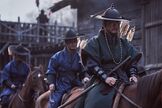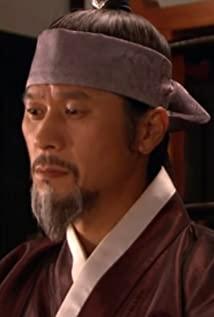Yili Ting sweeping holes
Erjianzhou Yuetu
3 "The strong will kill, the old and the young will be captured"
4. "If the earth collapses and the fire extinguishes, it still disintegrates and the ice disappears; empty its hiding place and hunt others; eliminate its caves and empty its nests"
Die as a zombie, live as a ghost. A story of genocide in the coat of the Great Wall. Diluted into a song by Meng Jiangnu. Battle of Sarhu in 1619.
All excerpts from the web
In order to better rule the Jianzhou Jurchen adjacent to the territory directly under the Ming Dynasty, in the long historical evolution, the monarchs and ministers of the Ming Dynasty simply divided it into Jianzhou Guards , commanded by Li Manzhu, Fancha, and Dong Shan respectively. , Jianzhou Zuowei, Jianzhou Youwei three guards that do not govern each other to restrain and restrict.
Time has changed, as a member of the East Asian tributary system, the once docile Jianzhou Jurchen has developed a heart of disobedience due to the continuous growth of strength after relocating to the place of residence and the growing prosperity after relying on the rules of the tributary of the Ming Dynasty. Assassination entered the territory of the empire to rape and loot, and even after Daming limited the number and frequency of its tributaries, he took advantage of the period when the military strength in the north of Daming was weakened after the change of Tumu Fort .
Facing the tense situation on the northeastern border, the angry Ming court decided to "sweep the acupoints in the plow court" and "absolute their race" to carry out cruel revenge activities against the Jianzhou Jurchen.
In July 1465 AD, the unbearable Ming court officially ordered to send troops to conquer Jianzhou, appointed Wang Ying, the governor-general, as the deputy commander-in-chief, and Wang Quan, the governor-general, as the guerrilla general. He went to Liaodong, and joined the local army chief Zhao Fu and others to conquer Jianzhou.
Faced with the operation of the huge Ming war machine, the Jurchen, who was temporarily weak, was naturally not an opponent.
However, in August of the same year, before the Northeast officials read out the edict of the Ming court's decision to conquer and suppress, Dong Shan, the leader of the Jianzhou Left Guard, and others scolded and stabbed Tong Shi (translator) with a knife from their sleeves. The Ming army immediately killed Dong Shan and other leaders of Jianzhou's left guards, and first broke the arm of Jianzhou Jurchen.
Later, it was a metaphor for the surrounding guards, which were governed by the leaders of ethnic minorities, to appease the place and isolate it politically. The loyal Korean kingdom immediately launched a looting attack on the Jurchen under the call of Daming.
In September of the same year, the huge expedition army officially set off from Fushun, and traveled all the way to the Jurchen lair, Hucheng. Even if the Jurchen villages along the road are empty, they all gather in Hucheng and intend to fight the Ming army to the death, but they are no match for the elite Ming army at this time.
Under the guidance of the expedition policy of "if the earth collapses and the fire extinguishes, it will still disintegrate and then the ice will disappear; empty its hiding place and hunt others; ditch its caves and empty its nests" under the guidance of the expedition policy, the elated Ming army frantically burned down the residences of Jurchen villages and looted Cultivating cattle, gold and silver, and returning everything that Jurchen did to the people of Ming Dynasty in the most brutal way. After that, in a song of triumph, the Ming army from all walks of life penetrated into the deep mountains and forests to find the cruel enemies of the Jurchen, and began the month-long "hide-and-seek" encirclement and suppression session.
According to official statistics from the Ming Dynasty, a total of 108 people were captured, 541 beheaded, 151 men and women captured, and 1,165 people captured by the Jurchen were recaptured. Wherever the Ming soldiers went, "the strong will be killed, and the old and the young will be captured", and the Jurchen houses and warehouses have also become white fields, and the cattle, horses, and weapons have also been taken away by the Ming army.
However, compared to the looting of North Korea and the looting of the surrounding guards, this is only the tip of the iceberg.
But it was the Ming court's fierce battle against Jianzhou Jurchen that caused the originally strong Jianzhou Sanwei to turn from prosperity to decline.
When the leader of the real prestige, appeal, and can control the actions of the various ministries of the state, he will either die on the battlefield, or be imprisoned in the Jinyiwei prison, or be assigned to the remote smoke barrier of Daming to join the army. Since then, until the early years of Wanli, before the rise of Jianzhou Wang Gao, Wang Wutang and others, the Jianzhou Sanwei was always in a scattered and weak state, which greatly weakened the threat of Jianzhou Jurchen to the northeast of the Ming court.
However, it was also the Ming court who saw the matter, and was unable to continue garrisoning troops in the deep mountains and forests to set up a county. For the time being, he chose to continue appointing Tuoluo, the son of Dong Shan, the former governor of Jianzhou Zuowei, and the nephew of Gunaha, the former governor of Jianzhou Wei. Tu and others assumed the positions of their fathers and uncles, so that they still lead the people of Benwei, and only the arrogant measures of the Celestial Empire, such as demotion and paying tribute to the former, paved the way for the Jurchen to make trouble again in the future.
View more about Kingdom: Ashin of the North reviews









